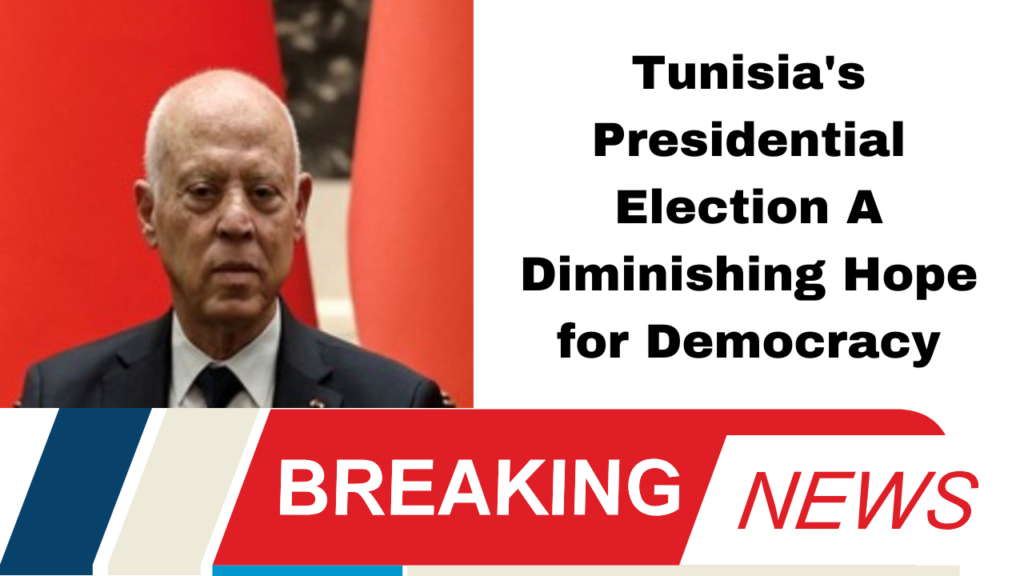In Tunisia’s first presidential election since President Kais Saied began dismantling the democratic structures established after the 2011 Arab Spring, the results came as little surprise: the incumbent was declared the winner. Saied, who first took office in 2019, reportedly won re-election with over 89 percent of the vote against his main rival, Ayachi Zammel, who remains imprisoned on charges many believe are politically motivated.
Election Process Under Scrutiny
The electoral landscape starkly resembled the oppressive days of former dictator Zine el-Abidine Ben Ali, as Saied’s government disqualified most potential challengers and arrested key opponents. Critics assert that the electoral commission, now firmly under Saied’s control, effectively ensured a predetermined outcome by blocking fair competition.
Turnout for this election was notably low only 27.7 percent of eligible voters participated significantly less than the roughly 50 percent who voted in the previous presidential election. This decline reflects growing disillusionment among Tunisians, many of whom initially viewed Saied as a beacon of hope for addressing corruption and economic instability.
A Shift from Democratic Aspirations to Authoritarian Rule
Since Saied’s sweeping changes in July 2021, including rewriting the constitution to consolidate power, Tunisia has seen a troubling rollback of democratic gains. Media outlets have been muzzled, the judiciary subordinated, and critics including journalists, activists, and opposition leaders have faced imprisonment under vague laws targeting “fake news.”
Saied has claimed his actions are necessary to protect Tunisia from alleged conspirators and traitors, vowing to “cleanse” the nation of corruption. Yet, as his grip on power tightens, many are questioning whether he can still be seen as the savior he once appeared to be.
A Dwindling Opposition and the Future of Tunisian Democracy
The opposition has largely boycotted the election, labeling it a sham and indicating that the electoral process lacks legitimacy. Disqualified candidates, including Zammel, have voiced intentions to challenge the results, but given Saied’s control over the electoral commission, the likelihood of success seems slim.
Campaigning for Zammel faced significant obstacles, particularly his imprisonment. Supporters reported an atmosphere of fear that discouraged open canvassing, even among those who privately supported Zammel. “Kais Saied doesn’t believe in elections,” said Mahdi Abdeljawad, an adviser to Zammel’s campaign. “He only organized them because he had to.”
The apparent ease of Saied’s victory, set against a backdrop of low voter turnout and widespread opposition boycott, raises serious concerns about the future of democracy in Tunisia. As the country grapples with deepening economic woes and growing discontent, the question remains: can Tunisia recover its democratic aspirations, or will it continue down a path of authoritarian rule under Kais Saied?
With the electoral process increasingly viewed as a facade, the challenges ahead for Tunisia are significant. The hope for a vibrant democracy, once alive in the aftermath of the Arab Spring, now hangs in the balance.











More Stories
Netanyahu Under Fire as Leaked Documents Scandal and Hostage Crisis Deepen
Mount Fuji’s Snowless Peak A Sign of Climate Change and Japan’s Cultural Icon in Crisis
Malik Mumbai’s 15 Crore Monthly Income ‘Haar Meri Jeet Apki Offer’ for WBBL 2024 Your Guaranteed Win or Refund!